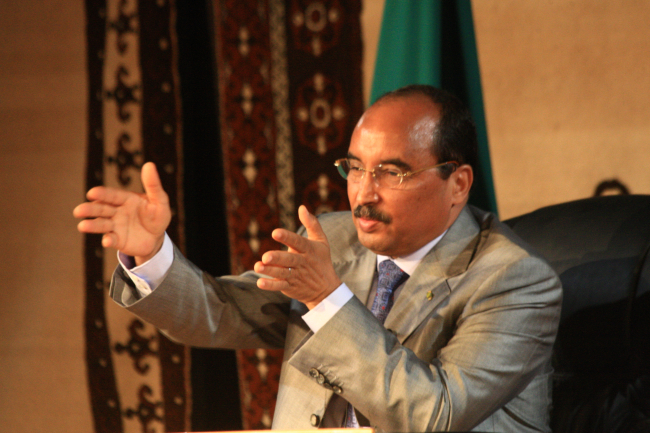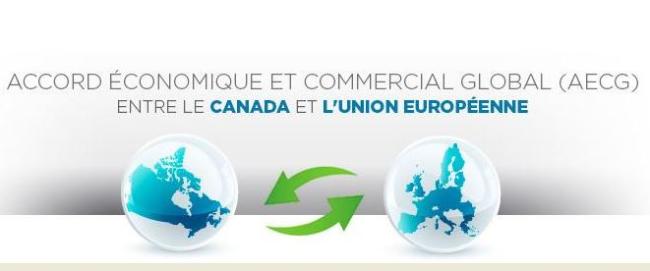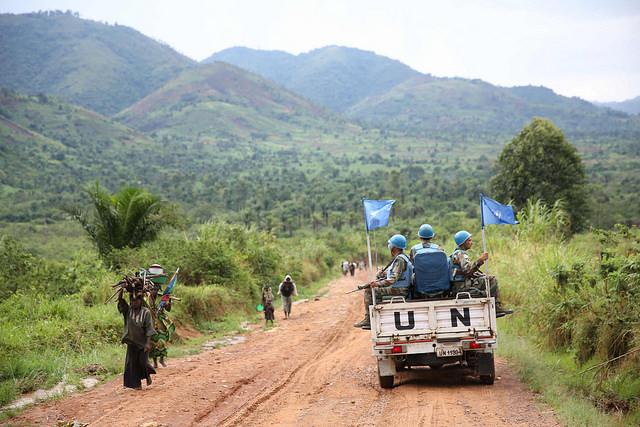3371 publications
The faded star of President Mohamed Ould Abdel Aziz
The Mauritanian President, Mohamed Ould Abdel Aziz, was elected in 2009. The architect of two successful coups: in 2005 against President Maaouya Ould Sid’Ahmed Taya, and in 2008 against President Sidi Ould Cheikh Abdellahi, nowadays he is in his second and last term of office according to the Mauritanian constitution. He is viewed by the country's partners as one of the key figures in the stability of the Sahel. However, the international community does not see, or pretends not to see, the weakening of his regime.
Russia's Diplomacy in the Middle East: Back to Geopolitics
Moscow's approach to the Middle East has undergone real changes from Soviet times to the present day: it evolved from creating zones of influence against the background of confrontation with the West to seeing the region through the prism of mainly economic interests, and, finally, to Moscow’s current pragmatic view.
Retours sur Sangaris. Entre stabilisation et protection des civils
In December 2013, France launched its operation Sangaris in the Central African Republic. What conclusions can be drawn for the stabilization of the country and the protection of civilians?
CETA: the Making of the Comprehensive Economic and Trade Agreement Between Canada and the EU
Once ratified, the Comprehensive and Economic Trade Agreement (CETA) could ultimately eliminate all tariff barriers between the European Union and Canada. CETA is also a new generation Free-Trade Agreement: it includes the opening of public procurement, the facilitation of cross investments and cooperation in the area of regulation. Its long negotiation process illustrated important changes that are happening in the way trade agreements are negotiated, both in Canada and in the EU.
Najib Razak’s Malaysia: A solid economy on a foundation of political tension
Najib Razak began his term as Prime Minister of Malaysia in 2009 amidst a severe global economic crisis, concern over spiraling public debt and fears the country would fall into the ominous “middle income trap”.
Reflections on 17 years of UN presence in the Democratic Republic of Congo
Since 2013 and the victory of the Congolese armed forces and the United Nations over the last serious threat against the regime - the 23 March (M23) movement-, the question of the relevance of the UN presence in the Democratic Republic of Congo (DRC) is raised again.
Citizenship in the French Tradition. Values and Realities
Citizenship is a major issue in public debates when it comes to immigration in France. Passionate talks illustrate the current disagreements on the meaning of value such as “laïcité”, “universalism”, “equality”, “community” and on the way these should apply in social and political life.
Présidentielles 2016: le Parti républicain et la politique étrangère
Three Republican presidential candidates have proposed a foreign policy agenda worthy of examination. Marco Rubio (who withdrew from the race on 15 March 2016) and Ted Cruz present well-defined political projects pertaining to different traditions of American foreign policy theory. Donald Trump’s approach is less clear-cut but also less traditional, between isolationism and profitability.










